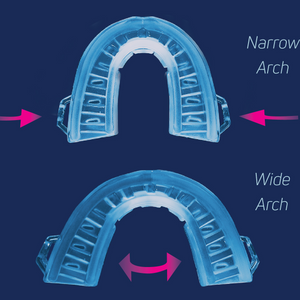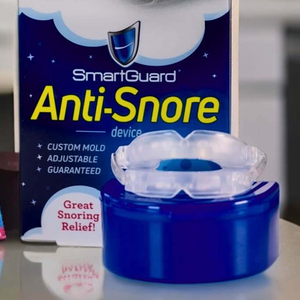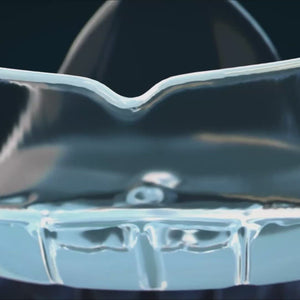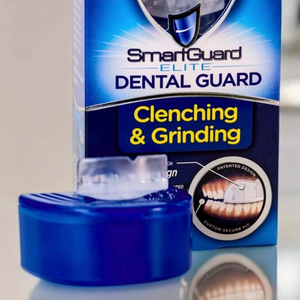Aug 14, 2023
HOW DOES SLEEP APNEA AFFECT DREAMS AND NIGHTMARES?
HOW DOES SLEEP APNEA AFFECT DREAMS AND NIGHTMARES?
Obstructive Sleep Disorder (Sleep Apnea) makes it difficult to achieve the deepest, best sleep that we need for full recovery. That’s because your sleep is constantly disrupted due to an obstructed airway. The inability to fall into a deep sleep prevents you from entering the REM (Rapid Eye Movement) phase of sleep, which is when most dreams occur. The eyes twitch, and the brain is active imagining and seeing things. Without sufficient time in REM sleep, our dreams suffer from being too short or scary. There are five sleep stages: sleep onset, slow-wave sleep, deep sleep, deepest sleep, and REM sleep. Steps two through four are considered non-REM sleep. When a sleeping disorder prevents us from entering REM sleep, we don’t dream much at all and certainly are not likely to remember any dreaming.
WHY DO WE DREAM?
Let’s look into why we dream. It’s believed that REM sleep helps us integrate emotional material into long-term memory. In short, dreams are your brain’s way of interpreting your normal life experiences and what occurs in your day-to-day life. A trivial sight or event during your day is stored away in your subconscious brain, only to emerge as a dream during your next trip to REM sleep. Other causes of dreams are conscious hopes, experiences, or even stressors, such as anxiety, depression, or PTSD (Post-traumatic Stress Disorder).
ARE SLEEP APNEA DREAMS DIFFERENT?
There’s a difference between the dreams experienced by those with untreated sleep apnea versus those without. Since those with untreated sleep apnea don’t fall into a deep sleep, most sleep apnea dreams are only fragments and leave us unfulfilled about the incident. This can increase the potential for anxiety or depression. And certainly, there is an inverse relationship here. Anxiety and depression can cause more dreaming.
Sleep apnea dreams are different for all. Many of those with untreated sleep apnea don’t remember their dreams at all, which we will go over later in the article.
CAN SLEEP APNEA CAUSE VIVID DREAMS?
Vivid dreams can be a sign that you may have sleep apnea? Vivid dreams may also be another side effect of sleep apnea. It’s as if the gasping for air finally raises oxygen levels in the blood just long enough to boost us to experiencing highly active and life-like dreams.
Vivid dreams feel more like a reality than a dream. Since those with untreated sleep apnea experience a lack of sleep, they experience extremely intense dreams when they do finally reach REM sleep. Some vivid dreams are classified as good and others as bad. But take note that vivid dreams are rare and may have additional underlying causes, such as stress and a general lack of sleep.
WHAT ARE SLEEP APNEA NIGHTMARES?
In severe cases, those with untreated sleep apnea admit they struggle with a lot of nightmares. Those with untreated sleep apnea have periods of not breathing while sleeping. The lack of oxygen tells your brain that you’re in danger. This is why many with untreated sleep apnea struggle with the same nightmares, which include nightmares about choking or dying. Some with untreated sleep apnea may even have night terrors, which is when one experiences anxiety and even fear while sleeping. You will often awaken as a result and feel afraid. You may not remember your dreams—but you just know that you woke up feeling a sense of dread.
It’s important to note that not all with untreated sleep apnea experience nightmares due to sleep apnea. Sleep apnea nightmares may also be triggered by negative emotions. You may also get easily irritated if your REM sleep is interrupted. This emotional reaction can reside in your brain, causing a nightmare.
If you have sleep apnea and nightmares, you can get help. Studies show that CPAP machines and other devices to reduce or prevent OSD (Obstructive Sleep Disorder) can decrease nightmares and other sleep-related symptoms.
OTHER CAUSES OF BAD DREAMS
Besides being a side effect of sleep apnea, bad dreams have other causes, such as negative emotions, anxiety, stress, medications, hormonal changes, eating late at night, or eating certain foods late in the day. For some, a piece of chocolate, almond butter, and other sugary treats can trigger the nightmare. Some people are more prone to nightmares or night terrors because of genetics and family history.
Some mental disorders can correlate with untreated sleep apnea, increasing the risk of nightmares. For example, one study showed that 70% of veterans with post-traumatic stress disorder (PTSD) have a high risk of developing Obstructive Sleep Disorder.
DREAMS ABOUT SUFFOCATING
Of all of the nightmares seen by those with untreated sleep apnea, those about suffocating and choking are the most common. Why do these nightmares occur? Your dreams are the interpretations of your emotions and your daily experiences. If you have difficulty breathing while you sleep, your brain will interpret this as you’re suffocating or being choked. Life stress and anxiety can also trigger bad dreams of choking. One of the most common symptoms is waking up and not being able to breathe. You may also start gasping for air, breathe hard and loudly, and feel the sensation of being smothered while you’re asleep.
SUMMARY
To wrap up, the majority of dreams occur during the REM phase of sleep. People with sleep apnea tend to miss much of this healthy phase of sleep; therefore, they don’t dream as much; but when they do, the dreams are short fragments and are often bad dreams. Remedies, such as CPAP and even anti-snore devices can help.







